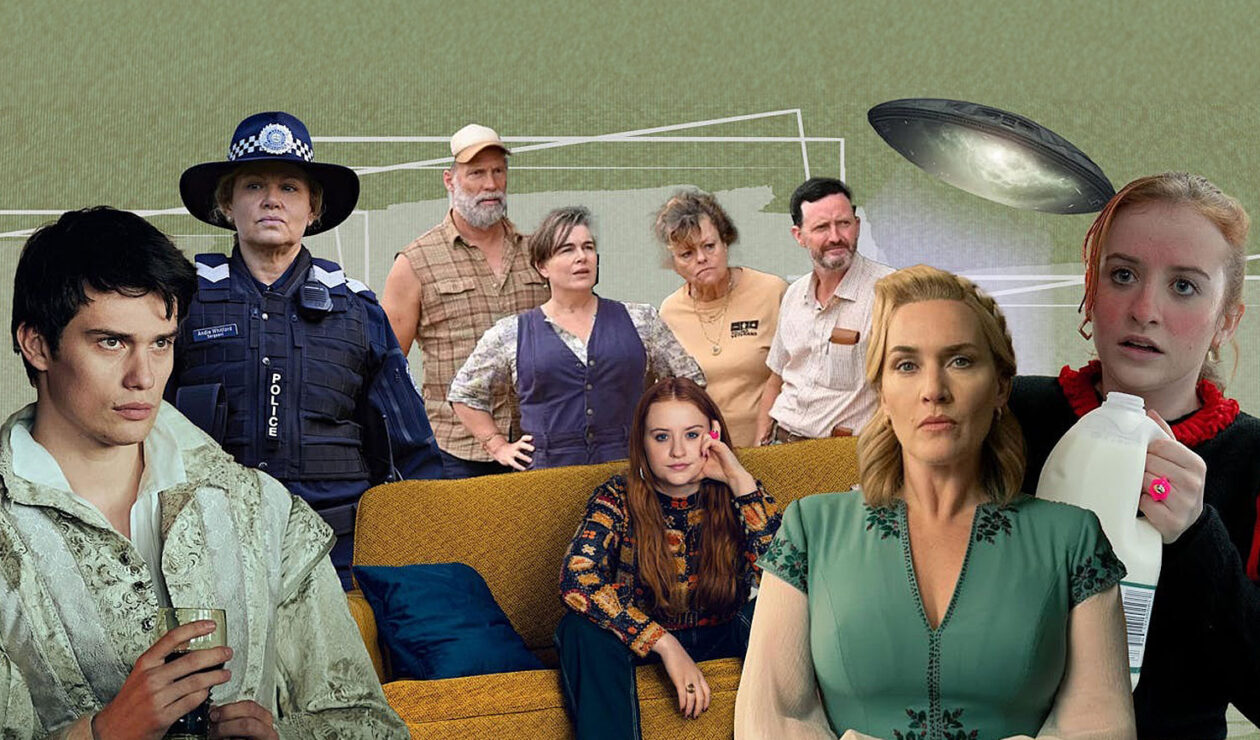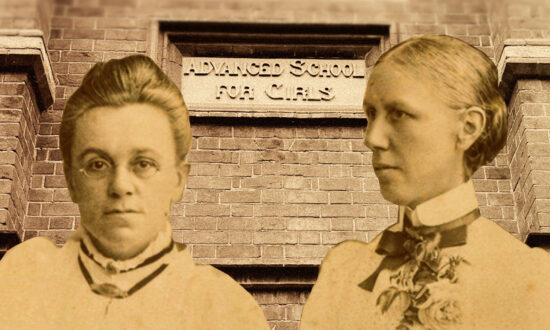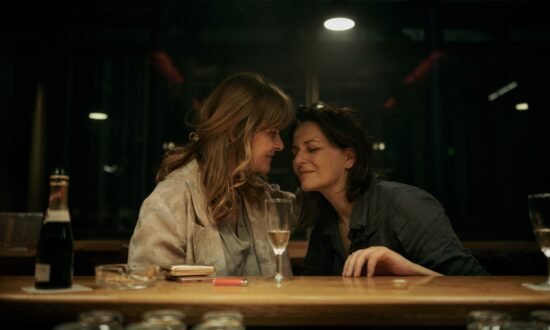As the weather begins to cool, you might be spending a few more nights in front of the television on the couch (or on your laptop in bed), looking for a new show to lead you into autumn.
This month, The Conversation‘s experts are recommending everything from steamy historical dramas, to reality shows about the high-octane world of glassblowing, to new Aussie crime mysteries. Whatever you’re looking for, they have you covered with what to stream in April.
Mary & George
Binge
If The Crown can take liberties with the current royals, can we object if television fictionalises a now 400-year-old reign? The series Mary & George is based on the manipulation of King James I by an amoral mother and son, who win control of almost unlimited riches and power.
That much is true: James, the Scottish King who succeeded Elizabeth I after she died childless, had a series of male favourites of whom George (eventually Duke of Buckingham) was the most significant. George’s mother, Mary Villiers, made several strategic marriages aimed at giving her access to, and influence at, the court.
The dominant figure is Julianne Moore’s Mary, whose steely determination is only shaken when her own favourite, a former prostitute who becomes her lover, is threatened. George is played by the handsome Nicholas Galitzine, who moves from the king’s bedtime playmate to the effective ruler of England.
In time, George becomes a patron of the king’s son, the future Charles I, and is finally stabbed to death by a disgruntled soldier. Least convincing is Tony Curran, whose James rarely seems to take any interest in his regal duties – even as he proclaims his divine right to rule.
The program is sumptuous, bawdy and irreverent. If it leads you to check on its historical accuracy, you may discover that homosex was far more significant in the Stuart court than they taught you at school.
– Dennis Altman
Extraordinary, season two
Disney+
The second season of Extraordinary has just landed, and it proves the show is high-concept television at its best.
What if everyone in the world had special powers except you? What would it mean to be ordinary in a world where extraordinary is the norm? Some superpowers we’ve seen before, such as flight and superspeed. But others are perfectly crafted for comedy – whether that’s knowing exactly when someone will get their period, being a human magnet, or bestowing orgasms through touch.
If Sister Michael was your favourite part of Derry Girls, Siobhán McSweeney is joy-in-human-form as protagonist Jen’s mother. Jen’s superpowers are still absent, while her best friend Carrie (played excellently by Sofia Oxenham) can channel the dead. In the latest season, this ability is used to contact Princess Diana to get advice on how to “win a break-up”.
Even Jen’s cat “Jizzlord” has superpowers. Jizz is actually a shapeshifter who got stuck as a cat for years, and thus began living life as a pet.
The first season is easy to catch up on, with short and funny episodes. The second season continues in form, with more wacky adventures and absurd scenarios that prove even with superpowers abound, life is a challenge.
– Jessica Ford
Population: 11
Stan
Stan’s original series Population: 11 is said to have been inspired by the real Aussie town of Larrimah where, in 2017, Patrick “Paddy” Moriarty and his dog Kellie disappeared without a trace.
The series stars Ben Feldman as Andy, a hapless American banker who travels to Bidgeegud – a tiny town offering “Outback UFO tours” – in search of his estranged father, Hugo. Inevitably, things don’t go to plan.
Andy discovers Hugo is missing, and teams up with fellow outsider Cassie (Perry Mooney) in search for clues. The pair progressively uncover the many secrets of the tiny town, one suspicious resident at a time.
This 12-episode comedic crime-thriller is created by Australian writer Phil Lloyd and draws on the same heavy-handed comedy featured in Lloyd’s previous works. Most heavy-handed is the revelling in Aussie stereotypes, wherein self-centred Andy is frustrated by how “everything bites” and criticises the only person helping him in a mock Australian accent.
Nonetheless, the series finale offers a genuinely satisfying conclusion. It ties up a scatter-gun of loose ends, allows the charismatic Feldman to relax into a more fully realised Andy, and emphasises what wasn’t always obvious: this is a story about belonging.
– Kelly McWilliam
Blown Away, season 4
Netflix
Craft was the saving grace of many folks during the 2020 COVID lockdowns. A widespread interest in pottery, sewing, baking and flower arranging sparked myriad reality competition shows focusing on artists that make wondrous works by hand.
So what does the 2024 iteration of Netflix’s Blown Away – a show that pits real-life glassblowers against one another – have to offer four seasons in that is new?
The answer is: not much.
Sure there’s a new host, TV personality Hunter March. There’s also a cash prize of $100,000 this season, as well as residencies for the winner – probably due to outcries that exposure alone is not enough to pay the bills.
But much remains the same in Blown Away season four, and happily so. The cast of quirky and sweaty glass artists peering into a searing glory hole, or losing it over dropped or cracked creations, continues to entertain and inspire.
I must give kudos to the series’ cinematographers and editors, who inject much colour and movement into the show at a rocketing pace. I’m looking forward to season five!
– Phoebe Hart
High Country
Binge
“If you don’t know who your mob are, you don’t know who you are.” That’s what Detective Andrea “Andie” Whitford is told early on in the new eight-part crime series High Country.
Andie, played by Leah Purcell, has recently arrived in the remote Victorian high country with her partner Helen Hartley (Sara Wiseman), both trying to put traumas behind them and start afresh.
New in town, Andie – to the decry of her colleagues – is assigned the case of solving a murder and disappearance of two locals. What follows is a captivating narrative that tackles a range of issues ranging from climate change, to domestic violence, to Indigenous identity and land possession.
In the rich tapestry of Australian crime fiction, High Country adds to the rise of what has been dubbed “rural” noir.
Creators Marcia Gardner and John Ridley (whose backgrounds include scripting the Australian network crime shows Wentworth Prison and Stingers) are joined by Wentworth Prison director Kevin Carlin, who directs five of the eight episodes.
Together, Gardner, Ridley and Carlin have made a suspenseful procedural crime series that never loses pace or focus. And the cliffhangers at the end of each episode make this a very binge-worthy show.
– Stephen Gaunson
The Regime
HBO Max
The team behind the new, twisted, dark satire The Regime is certainly impressive. The series stars Kate Winslet as Elena Vernham, the unhinged Chancellor of a fictional country in central Europe. She is supported by Matthias Schoenaerts, Martha Plimpton, Andrea Riseborough and Hugh Grant.
Vernham struggles to maintain authoritarian control as the relations between her and her Corporal Herbert Zubeck (Schoenaerts) shift. At first, he is in awe of her power, and will do anything to support her. However, he soon begins manipulating her through her anxieties.

Get InReview in your inbox – free each Saturday. Local arts and culture – covered.
Thanks for signing up to the InReview newsletter.
Vernham is paranoid that everything around her, from her environment to her diet, is toxic. She is also out of touch with the working class. Noticing this, he forces her to shun her husband, cabinet and advisors – and the tussle for power between the two continues. Through his influence, she invites poor farmers to a celebratory dinner and, in one scene, they literally eat dirt for breakfast.
The Regime is an interesting satire that explores the corruptive dynamics of power, with Winslet superb in the lead role.
The series is created and written by Will Tracy, who also wrote Succession and The Menu. Directors Stephen Frears and Jessica Hobbs capture Vernham’s grandiose palace beautifully. And the jaunty score, akin to a naff national anthem, is composed by Alexandre Desplat and Alex Heffes.
– Stuart Richards
Dennis Altman is a VC Fellow at La Trobe University; Jessica Ford is a lecturer in Media at the University of Adelaide; Kelly McWilliam is Associate Professor of Communication and Media at the University of Southern Queensland; Phoebe Hart is Associate Professor, Film Screen & Animation, at Queensland University of Technology; Stephen Gaunson, is Associate Professor in Cinema Studies at RMIT University, and Stuart Richards is a senior lecturer in Screen Studies at the University of South Australia.
This article is republished from The Conversation under a Creative Commons licence. Read the original article.
![]()
Support local arts journalism
Your support will help us continue the important work of InReview in publishing free professional journalism that celebrates, interrogates and amplifies arts and culture in South Australia.
Donate Here




